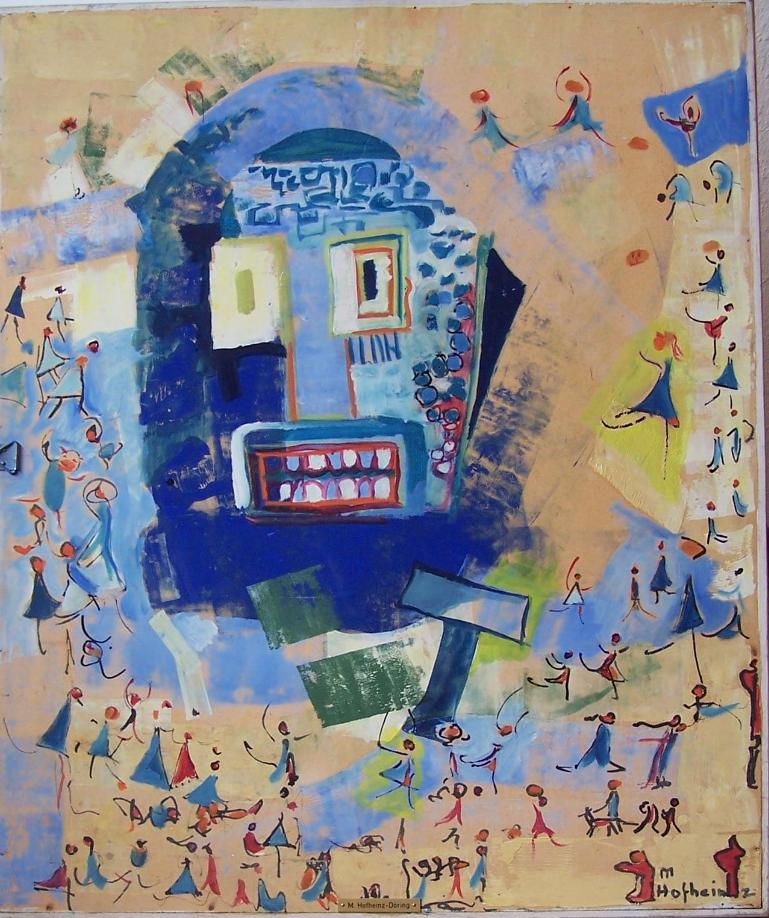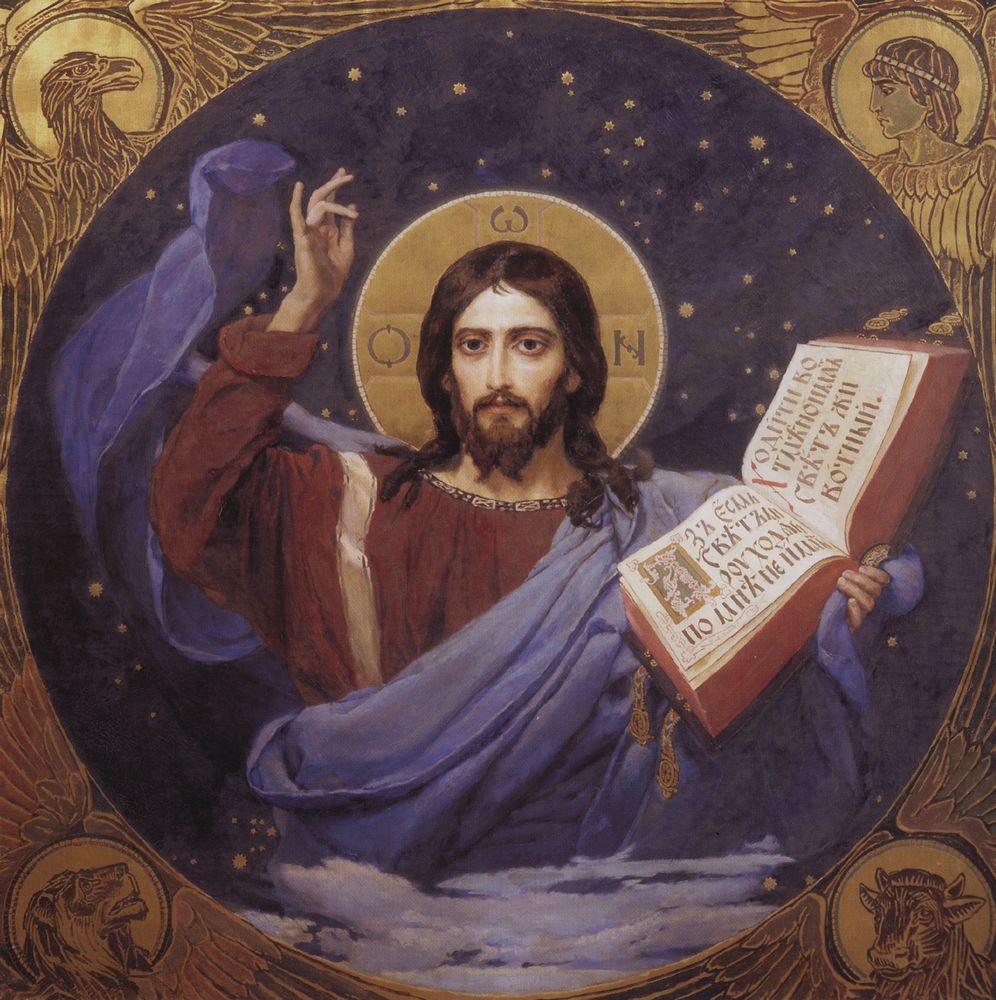

Rev Dr Chris Wright is Global Ambassador and Ministry Director of Langham Partnership (www.langham.org), the author of many books including commentaries on Exodus, Deuteronomy, Jeremiah, Lamentations and Ezekiel, and is a Senior Research Fellow of the KLC.

In our first reflection on Psalm 96 (TBP 06), we observed how verses 1–3 call on worshippers to sing a new song that, first of all, refreshes the old words. Words that had been part of the old songs of Israel for centuries – the name, salvation, glory and mighty deeds of Yahweh – were envisaged as a new song to be sung among new peoples in all the earth. And that is a truly missional vision that goes back to God’s promise to Abraham. The story of Israel’s saving history with Yahweh God would become music in the ears and mouths of the rest of the world, in the missional prophetic imagination of the psalmist.
Moving on to the central section of the psalm, verses 4–9, we find that this is a new song that, secondly, displaces the old gods.
The new song is to be sung by a very large choir – all peoples in all the earth. But to whom is this new song to be sung? An audience of one! That is stated emphatically three times “Sing to the Lord …” in vv. 1–2. The psalmist is not calling on the nations to raise a song of celebration for whatever god or gods they may have – a kind of multi-faith religious worship festival of music and praise, such as might be welcomed today in some of our great multi-ethnic cities. No, the nations must join in singing praises to this God, Yahweh God, the God of Israel’s history and Scriptures. That’s who the original song was about: Yahweh’s name and salvation and glory.
And it is Israel who must lead the choir and teach the words of the song, because it was in Israel’s unique history of redemption and revelation that the one true living God of all the earth had made his identity known. That is how Moses interpreted the great foundational events of Israel’s early history. Read Deuteronomy 4:32–39. What God had done for Israel in the exodus and at Mt Sinai was unprecedented (he had never done it anywhere else) and unparalleled (he had not done it for any other nation). So Israel was in the unique position of knowing the living God in a way that no other nation did at that time. Indeed, they were entrusted with that knowledge, since we know that the purpose of being chosen by God in Abraham was ultimately to be the people through whom God would bring blessing to all nations – the same blessing of knowing God as redeemer, revealer and covenant Lord.
35 You were shown these things so
that you might know that the
Lord is God; besides him there is
no other.
39 Acknowledge and take to heart
this day that the Lord is God
in heaven above and on the earth
below. There is no other.
(Deut 4:35, 39)

So if there is no other God, then there is no place in the new song for the other gods, the old gods of Canaan, or the seemingly powerful gods of the surrounding nations. These central verses of Psalm 96, then, call for a radical displacement of the old gods. They cannot stay around when the new song is being sung to the Lord, to Yahweh, the one true living God revealed in Israel.
4 For great is the Lord and most
worthy of praise; he is to be feared
above all gods.
5 For all the gods of the nations
are idols, but the Lord made the
heavens.
Verses 4 and 5 give us some reasons for this displacement and exclusion of the gods (note the opening “For …”). Only Yahweh is great. Only Yahweh is worthy of praise. Only Yahweh is to be feared above all gods.
Now verses 4 and 5 might seem to say two different things about these other gods. In verse 4 they seem to be something, something that you can be afraid of. If Yahweh is to be feared above all the gods, then it seems the other gods are things that we fear. And indeed, fear is a major driver of the manufacture of gods. Human beings have much to fear. We’re afraid of this unpredictable world, we’re afraid of the power of nature, we’re afraid of powers we don’t understand, we’re afraid of a very uncertain future, we’re afraid of people who oppress us, we’re afraid of ideologies and worldviews that can be so destructive. And then in fear, we try to placate these terrors with some more powerful gods, to find some measure of security and protection. Fear generates idolatry – just as true in the sophisticated late-modern Western world as in any other religious cultural worldview. But, says verse 4, whatever we might be afraid of, or idolize out of fear, Yahweh is incomparably greater and more powerful. He really is the only God to be feared. “Fear him, you saints, and you will then have nothing else to fear.” (2)
And so verse 5 somewhat “corrects” verse 4. If the gods of the nations seem to be something (something to be feared), we need to recognize that in reality they are nothing – nothing in comparison to the living God. There is a delightful play on words in the Hebrew of verse 5. The word for God is elohim and the word translated here as “idols” is elilim. That word basically means weak and worthless, just a puff of breath, nothing at all really. Whereas the Lord God in verse 5, is the creator of the universe. There’s no contest! What do you want for a god to worship? A puff of breath or God the creator!
So if you’re looking for splendour, majesty, strength, glory – something you can really worship – where are you going to find it? Not in all the sanctuaries of other gods, whatever they may be. Not, in our modern world, in the idolatrous dazzle of a massive sports stadium or celebrity award ceremony, or the deck of an aircraft carrier, or the thrusting phallic symbols of competing corporate skyscrapers (isn’t it childish how nations boast about who has the tallest free-standing buildings?! Babel has not gone away), or the hubristic display of a nation’s military might and destructive power, or the prestigious display of mega-wealth in mansions and yachts, or the trade in political privileges and influence. No, says verse 6, only the Lord God has the substance and the power and the reality. Only in humble submission to his presence and governance will we find true greatness.
6 Splendour and majesty are before
him; strength and glory are in his
sanctuary.
So where then, asks verses 7 to 9, where are the nations to bring their worship? For human beings are worshipping creatures – that’s definitional of our creation in God’s image and the reason why we make gods for ourselves. But if Yahweh alone is God, then all human worship should, and ultimately will, come to him – not to those other gods. Which is why I think we should read these verses with the emphases below.
7 Ascribe to the Lord, all you
families of nations,
ascribe to the Lord glory and
strength.
8 Ascribe to the Lord
the glory due his
name;
bring an offering
and come into his
courts.
9 Worship the Lord
in the splendour of
his holiness;
tremble before him,
all the earth.
So you see there’s a polemical challenge in these central verses of the psalm, which we sometimes miss because we just read them on such a flat plane. The psalm is claiming that the new song to the living God ultimately displaces all other gods. And this too is the effect of mission. Mission transforms the religious landscape of a person, of a family, of a community. Indeed, in the long sweep of history, Christian mission in the name of the living God and in the name and authority of the Lord Jesus Christ has transformed whole cultures – even if (as in the case of secularized European culture) that transformation is unrecognized and unattributed to its origins in Christian faith and biblical truth and values. Mission challenges and displaces the old gods and eventually moves them aside.
It’s worth noticing that the psalmist does not invite the nations to add the worship of Yahweh to all their other gods: “Please make room for our god too …”. When my family and I lived in India, we used to buy our bread in a bakery in Pune which rejoiced in the name of the Royal Bakery. And on the shelf behind the counter you would see a beautiful picture of Jesus – a Madonna and child, with a little garland around it and a candle underneath. So you might think this is a Christian shop, until you noticed that beside Jesus on the shelf there was the elephant-headed Ganesh, one of the gods of Hinduism. And on the other side was a little model of dancing Krishna and further along a little seated Buddha … This shopkeeper was hedging all his bets to make sure whatever gods are there were on his side. Now that’s not what this psalm is about. The psalmist is not inviting the nations, or any of us, to make room for Jesus on the shelf of all the other things we choose to worship.

There are even some kinds of evangelism that sound like that. Choose Jesus! – but as a lifestyle choice among many other options that are still available. But no, this psalm calls on all the nations of the world to accept the same exclusive commitment that was expected of Israel. “Hear, O Israel, the Lord our God is one Lord and you shall love the Lord your God with all your heart, with all your soul and all your strength” (Deut 6:4–5), and, “you shall have no other gods before my face” (Ex 20:3).
Likewise, for us this means declaring among the nations that Jesus is Lord, fully, eternally, uniquely, and there is no other – “no other name by which we must be saved” (Acts 4:12). So this new song, then, proclaims the good news of the gospel, in such a way that we can sing it only in the temple of the living God, not in the temples of other gods – except for the purpose of ultimately displacing them.